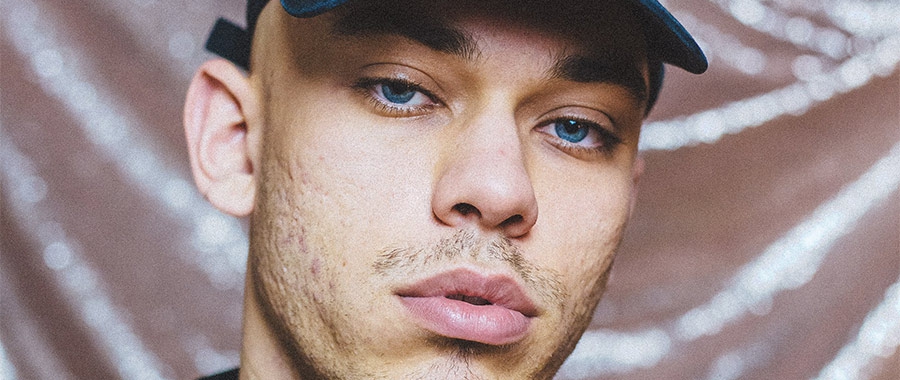The views expressed in our content reflect individual perspectives and do not represent the authoritative views of the Baha'i Faith.
My family has expanded far beyond the physical confines of my home or of my merely biological relationships.
What usually began as simple seeds of friendship often blossomed into lovely webs of extended family. My natural interconnectedness with the Rice family is one such example. I became friends with Ali sometime in elementary school—and in a short amount of time her family became part of my own. Ali’s little brother, Jesse, is just one of the many new family members that I inherited through my friendship with Ali.
Jesse’s reflective and charismatic openness provides a personal account of some reflections that have come up as he’s tried to apply the Baha’i principles of seeking coherence and striving for excellence to his life, as this interview reveals:
Q: What are you studying, Jesse? Can you tell us a little bit about the culture of your school or program?
A: I am currently Pre-Med student at the University of Illinois at Chicago (UIC), but my major is public health and my minor is in African American Studies. My school is super big, like 30,000 students I think, but it is a commuter school, which means that there isn’t much school pride or too much unification of all students on campus. I’ve actually considered switching schools in order to feel that school love and community that UIC is missing. But, my program is a cohort model and what that means is that every public health course that I take is with the same people, so there is a sense of community that is built into my specific program which is cool.
Q: Has being a Baha’i given you a unique perspective in your program/major? If so, how?
A: I don’t know about a specifically “unique” perspective, but it has definitely influenced my schooling and my interaction with the program. I am not good with words but I’ll try and get my point across: the Baha’i promotion of reflection coupled with action in a way that is unifying has always stuck with me, as well as the importance of coherence in both education and life. For instance, trying to figure out how this African American Studies course on the history of Black women’s reproduction in the United States that I am taking relates to my public health course on food insecurity in Chicago, as well as my Organic Chemistry class. Then, going even further, how does that relate to my life outside school and my extra-curricular activities? I know a lot of people aren’t doing that, and a lot of people are, but we all should! My program is also very depressing because it’s focused on everything going wrong in the world which causes poor health. So, something that I try to bring to the program is a sense of positivity and hope that we can make a change, and my hope is rooted in the teachings of Baha’i Faith.
Q: Do you fuse your education with the Baha’i focus of community building? If so, how?
A: Dang, so I feel like I kind of touched on this with the last question, but yes I attempt to. My focuses in school also have community-building as one of the main components of the field, this allows for an easy fusion of the two, which is very lucky for me.
Q: What do you contribute to your school’s community? Do you feel your Baha’i identity affects how you contribute to the community you are in? If so, in what ways?
A: For the little that I contribute to the community of my school, yes I would say that my Baha’i identity affects my contribution. The reason that I am even alive is due to the teachings of the Baha’i faith. My father is black and my mother is white, and their union is due to their love of Baha’u’llah and his teachings, one of which is the unity of all humankind and the oneness of the human race. My parents got together during a time in the country when interracial marriage was still really scandalous. So, my Baha’i identity is at the root of my very existence in this world, so it’s inevitable that my Baha’i identity affects the way I contribute to my community. Every time I raise my hand and contribute something to the class that I think will advance the whole class’ understanding on a subject, every time I discourage my peers from talking ill of a teacher or fellow classmate, or every time I volunteer to serve on campus I am affected by my Baha’i identity.
Q: Do you have a favorite quote or teaching? Why is this so impactful for you?
A: Yeah I do. It’s from Baha’u’llah’s book Epistle to the Son of the Wolf:
Be generous in prosperity, and thankful in adversity. Be worthy of the trust of thy neighbor, and look upon him with a bright and friendly face. Be a treasure to the poor, an admonisher to the rich, an answerer of the cry of the needy, a preserver of the sanctity of thy pledge … – p. 93.
The quote continues, but you get the gist. As corny as it sounds, I view this quote as an oath and a pledging of myself to God and the Faith, like a knight would. A knight is historically a figure of utmost servitude: giving their life to the cause of God. If I work every day to live my life according to this quote, it will have been a good life.
Q: How does it affect the way you operate as a young person/student?
A: Part of trying to achieve perfection, or live by the words in the aforementioned quote is to do this in every aspect of your life. So, I try to advance my knowledge of the sciences, to push my creative abilities, to push my body physically, to be a better teacher of the word of God, a better learner, etc., etc. It’s like a never-ending test and or daily challenge to see how far I can push my body, mind, spirit in a lifetime attempt to better myself and the world around me.
















Comments
Sign in or create an account
Continue with Googleor